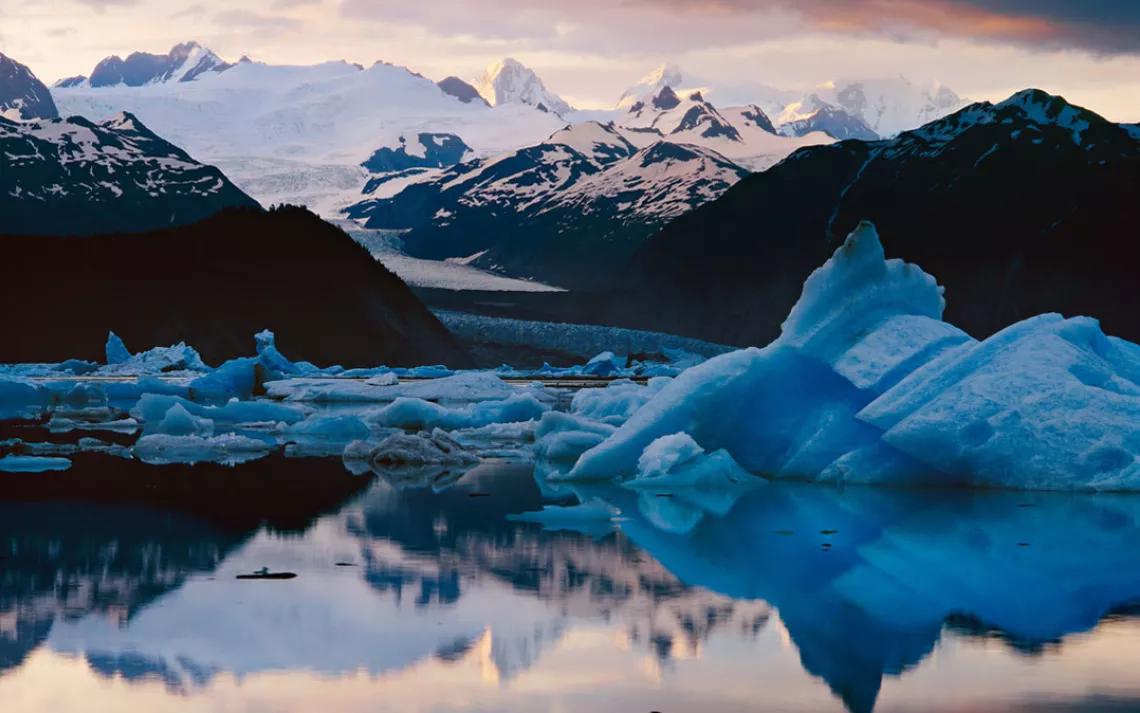Glacier Bay National Park, Alaska

Opportunities for sensory overload abound in Glacier Bay National Park and Preserve's 3.3 million acres. Pictured: Alsek Lake. | Carr Clifton/Minden Pictures
My boyfriend has drifted off to sleep, but I'm not the only creature awake. Humpback whales spout offshore, and mosquitoes whine at the tent screen, hungry for my blood. I scratch the bites on my ankles, then wrap my fleece-warmed arms around my knees and stare through June's long twilight at green willows, scanning for a moose.
Halfway through our Glacier Bay kayak trip, we have seen porcupines, black bears, and humpbacks. We have watched mountain goats scramble up waterside cliffs and a porpoise torpedo under our bow. But I'm still greedy for another wild encounter, another tale to bring back to the city.
At this new campsite, the tips of willows look nibbled, and big, round pellets are piled like spilled olives. In the sand below the high tide line, we found the twin crescent hoofprints of a very large ruminant. My stomach is full, and my arms ache from a week of paddling, often in wind and sloppy water, but I'm willing to wait up for a moose.
The willows stay quiet. I tap the mesh and the mosquitoes lift off. Others take their place. A steady, slow rain dances on the tent roof. When I yawn, my eyes close and I force them back open.
Hours later I'm dreaming about a fried chicken dinner when I realize that the crunching sound, like heavy hoof-falls on cobble, is not just outside of my dream but also circling the tent. The back of my neck prickles and my heart races as I tug at the tent zipper.
By the time I'm upright, there's no moose in sight. Before I can berate myself for having fallen asleep, I'm smacked by an overpowering smell. I clap my hands to my nose, wincing at the musky amalgam of dirty socks, fresh tobacco, and pit toilet.
When I wake in the morning, the odor is gone. What remain are fresh moose prints stamped around the tent and an odor sunk deep into my olfactory bulb, an indelible memory.
 The Magazine of The Sierra Club
The Magazine of The Sierra Club